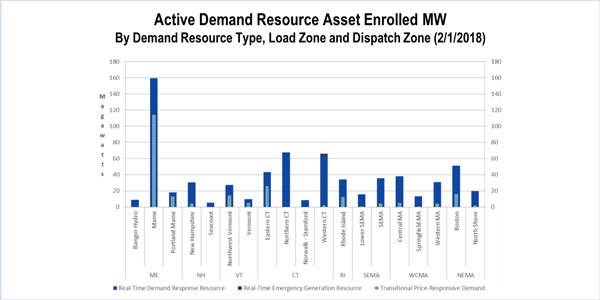By Michael Kuser
FERC last week denied CPower’s request for a one-time waiver to replace the results of a failed demand response audit with those of a more successful one conducted a week later (ER18-185).
In its request, the energy management company said that it had asked ISO-NE on July 17, 2017, to perform an audit of its real-time demand response resources (RTDRs). But when the RTO initiated the audit July 19, a communications problem prevented CPower from receiving the audit dispatch signal, causing most of the company’s resources to fail to perform. CPower pointed out that ISO-NE is the only RTO in the country that does not back up DR dispatch signals with an email, text message or phone call.
As a result of the failed audit, CPower concluded the month with a demand reduction value of nearly zero.
ISO-NE’s Tariff requires seasonal testing of RTDRs to establish their capabilities and ensure they are available to respond during an emergency event.
The RTO suggested that CPower request a second audit to “mitigate partially” the negative impacts of the first. A July 26 audit demonstrated 94% of the claimed capacity that CPower had registered in the RTDR program, and the company asked the grid operator to replace the July 19 results with those of July 26.
ISO-NE denied the request, saying its Tariff stipulates that a second audit cannot replace an initial audit conducted during that same month. It further argued that allowing RTDRs “another bite at the apple” to replace a poor performance during an audit could compromise the significance of such audits or impact future performance.
The RTO also said that granting the waiver would harm third parties by requiring the resettlement of capacity payments away from resources that followed dispatch instructions and performed well during their audits.
FERC agreed with ISO-NE, saying that CPower’s request was “not of limited scope because it would require rerunning market settlements” and thereby affect other market participants. The commission also noted that allowing resettlement would result in preferential treatment for CPower compared with other RTDRs that also performed poorly in the audits.
“Further, granting waiver would have broad implications on the effectiveness of auditing rules. It could undermine the integrity of audits — which by their nature test performance during unpredictable conditions — and impact future performance of RTDR,” the commission said.





